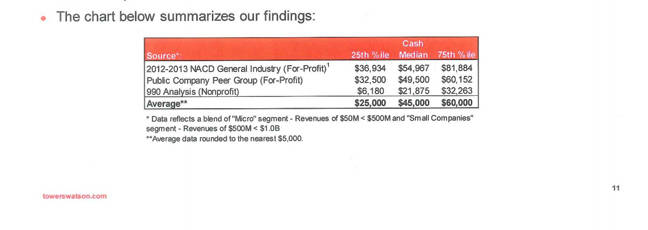This article is more than 1 year old
Is domain overlord ICANN the FIFA of the internet? We'll know this weekend
Future master-of-the-web heading down dangerous path
Money, money, money
After 10 years of pressure, ICANN finally opened up the top level of the internet to broader competition. It used its monopoly on the global internet root to do things: give itself more control and gather more money.
While working with an annual budget of $60m, ICANN Corporate drew up its own charges and fees that resulted in an extraordinary $357m windfall.
Even with heavily padded costs for evaluation, a $30m legal fund, and awarding itself $13.5m in "development costs," the program still provided the organization with $151m in "excess funds." On top of that, an auction process that it designed and approved made the organization an additional $58m.
With depressing inevitability, financial reporting from the "non-profit" has been opaque at best. Just as with FIFA, the organization has fed large sums of money into its "reserve" with little or no justification. And despite repeated claims that the money would be ring fenced and the internet community would decide how its funds were spent, the organization has suddenly started spending millions of dollars it didn't have in its pre-windfall budget.
In 2014, ICANN's income was $84 million; its expenses, $113 million. Staff salaries have gone up 10 per cent on average each year for three years, while inflation stands at one per cent. Senior staff and VPs – of which there are an ever increasing number – now pay themselves the same as vice presidents at for-profit companies that are hundreds of times bigger.
The Board is also benefiting to the tune of millions of dollars. The 20 members received just under $500,000 in "reimbursements" from July 2013 to June 2014 [PDF]. A further $1m was paid out on their behalf and over $500,000 was paid as compensation.
Those sums are only expected to grow when the figures for the past 12 months are made available.
In June 2014, four of the Board members did not receive any compensation, as they were only "liaisons." That changed when the Board proposed to itself that they also be paid. It then not only approved the extra expense itself, but at same time awarded every member a 12.5 per cent pay increase from $40,000 to $45,000.
That $45,000 figure is highly questionable. In a review of Board compensation, outside experts Towers Watson noted [PDF] that it was rare for non-profit organizations such as ICANN to compensate their Board members at all.
Regardless, the consultants – selected and paid for by the Board – then found non-profits that did compensate their Board members. But it turned out the average rate of those companies was just $21,875.
So how did the "independent experts" arrive at a figure of $40,000-45,000? By including not one but two averages of for-profit companies. One average was an industry average and the second was for public companies. Both averages were arrived at by looking at companies with revenues from $50m all the way up to $1bn.
The end result: ICANN's Board member compensation was arrived at by averaging two for-profit averages against one non-profit (ICANN is a non-profit), and pulling in figures from public companies (ICANN is not a public company) with revenues that started at $50m with a top-end of $1bn (ICANN's revenue is $100m).

The "independent" report on ICANN Board member compensation and its knowingly faulty methodology
Why was there not an outcry? Because the figures were only included at the end of a report that was linked to from a public comment announcement that drew just seven responses. In other words, no one noticed. But even if they had, the Board was under no obligation to make any changes or even respond.
There is no audit function that is not run by the Board. There is no appeal mechanism that could result in anything but the Board being asked to reconsider its own decision. And in the rare cases where the Board has been asked to review its own decision, it has decided 100 per cent of the time that it was right.
